Collections
-
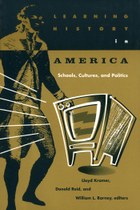 Learning History in America
Schools, Cultures, and Politics
Lloyd Kramer, Donald Reid and William L. Barney, Editors
1994 Spring
Learning History in America
Schools, Cultures, and Politics
Lloyd Kramer, Donald Reid and William L. Barney, Editors
1994 Spring
- As it extends recent discussions about multiculturalism into the sphere of contemporary historical understanding, this book sets out explicitly to explore the practical and theoretical implications of these discussions for people who learn and teach history in the United States. “Represents an excellent intervention into the debates over the canon, curriculum, multiculturalism, and popular memory. If the book only covered these issues, it would be an excellent text, but it goes a step further and analyzes questions regarding the relationship among history, authority and power as pedagogical as well as political issues. This book is brilliant in its conception, vital in its theoretical interventions, and crucial to anyone interested in history and pedagogy.” --Henry A. Giroux, Pennsylvania State University
-
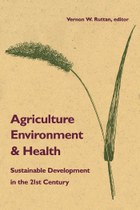 Agriculture, Environment, and Health
Sustainable Development in the 21st Century
Vernon W. Ruttan, Editor
1993 Fall
Agriculture, Environment, and Health
Sustainable Development in the 21st Century
Vernon W. Ruttan, Editor
1993 Fall
- Offers an interdisciplinary exploration of the implications of changes in institutional design and policy reform now underway at the global level. Ultimately, these changes will provide sustainable growth in agricultural production. Particular attention is given to the institutions that conduct research and implement changes in technology and practice in the fields of agriculture and health, as well as those that monitor the changes in resource endowments, the quality of the environment and the health, and productivity of the human resources employed in agricultural production.
-
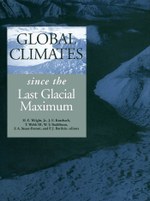 Global Climates since the Last Glacial Maximum
H.E. Wright Jr., John E. Kutzbach, Thompson Webb III, William F. Ruddiman, Street-Perrott F. Alayne and Patrick J. Bartlein, Editors
1993 Spring
Global Climates since the Last Glacial Maximum
H.E. Wright Jr., John E. Kutzbach, Thompson Webb III, William F. Ruddiman, Street-Perrott F. Alayne and Patrick J. Bartlein, Editors
1993 Spring
- Summarizes much of the geologic, paleoecologic, and oceanographic evidence for global environmental and climactic changes during the last 18,000 years.
-
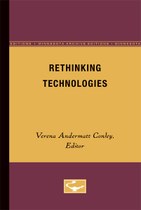 Rethinking Technologies
Verena Andermatt Conley, Editor
1993 Fall
Rethinking Technologies
Verena Andermatt Conley, Editor
1993 Fall
- Grounded on the assumption that the relationship between the arts and the sciences is dictated by technology, the essays in Rethinking Technologies explore trends in contemporary thought that have been changing our awareness of science, technology, and the arts. Contributors: Teresa Brennan, Patrick Clancy, Verena Andermatt Conley, Scott Durham, Thierry de Duve, Françoise Gaillard, Félix Guattari, N. Katherine Hayles, Alberto Moreiras, Jean-Luc Nancy, Avital Ronell, Ingrid Scheibler, and Paul Virilio.
-
 The Anti-Politics Machine
Development, Depoliticization, and Bureaucratic Power in Lesotho
James Ferguson
1994 Spring
The Anti-Politics Machine
Development, Depoliticization, and Bureaucratic Power in Lesotho
James Ferguson
1994 Spring
- “Through a detailed case study of the Thaba-Tseka Development Project in Lesotho over the period 1975 to 1984, Ferguson exposes the discourse and the practice of 'development' to a highly explicit and critical scrutiny. . . . The importance of Ferguson's book is that it exerts a decisive wrench away from evaluation of the success or failure of development projects in their own terms and towards an analysis of what development does, who does it, and whom it actually benefits.” --Colin Murray, Man
-
 Margins in the Classroom
Teaching Literature
Kostas Myrsiades and Linda S. Myrsiades, Editors
1994 Spring
Margins in the Classroom
Teaching Literature
Kostas Myrsiades and Linda S. Myrsiades, Editors
1994 Spring
- Brings together established scholars and emerging voices from diverse backgrounds to show how politics and theory can and do affect the most pressing problems confronting the contemporary teacher of literature. The essays in this volume go beyond questioning and examining existing practices to suggest fresh approaches to teaching the expanding literary canon within the context of the politics of the educational institution.
-
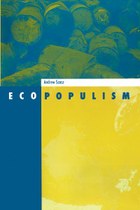 Ecopopulism
Toxic Waste and the Movement for Environmental Justice
Andrew Szasz
1994 Spring
Ecopopulism
Toxic Waste and the Movement for Environmental Justice
Andrew Szasz
1994 Spring
- This book reconstructs the growth of a powerful movement around the question of toxic waste, following the issue as it moves from the world of "official" policymaking in Washington, onto the nation's television screens and into popular consciousness, and then into America's neighborhoods, spurring the formation of thousands of local, community-based groups. Szasz shows how, in less than a decade, a rich infrastructure of more permanent social organizations emerged from this movement, expanding its focus to include issues like municipal waste, military toxics, and pesticides. In its success, Szasz suggests, this movement may even prove to be the vehicle for reinvigorating progressive politics in the United States.
-
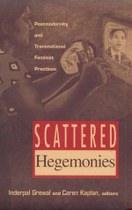 Scattered Hegemonies
Postmodernity and Transnational Feminist Practices
Inderpal Grewal and Caren Kaplan, Editors
1994 Spring
Scattered Hegemonies
Postmodernity and Transnational Feminist Practices
Inderpal Grewal and Caren Kaplan, Editors
1994 Spring
- Explores the possibilities of doing feminist work across cultural divides without ignoring differences or falling into cultural relativism. The essays in this volume propose transnational feminist reading and writing practices that counter the "scattered hegemonies" of postmodernism, neo- and postcolonialisms, and feminism. The authors gathered here bring the issues of colonialism and postcolonialism into the typically aesthetic debates over postmodernism and the construction of culture; at the same time, they broaden these debates to include the normally excluded issue of feminist participation.
-
 Micro-Politics
Agency in a Postfeminist Era
Patricia S. Mann
1994 Spring
Micro-Politics
Agency in a Postfeminist Era
Patricia S. Mann
1994 Spring
- Offers a radical alternative to feminist identity politics. According to Mann’s bold and original analysis, our political agency is prior to our sense of identity today. Micro-Politics provides a framework in which hierarchies of race, sex, class, as well as gender are figured as contested sites of struggle in our everyday lives.
-
 A Dialogue of Voices
Feminist Literary Theory and Bakhtin
Karen Hohne and Helen Wussow, Editors
1994 Spring
A Dialogue of Voices
Feminist Literary Theory and Bakhtin
Karen Hohne and Helen Wussow, Editors
1994 Spring
- Focusing on feminist theorists such as Hélène Cixous, Teresa de Lauretis, Julia Kristeva, and Monique Wittig in conjunction with Bakhtin’s concepts of dialogism, heteroglossia, and chronotope, the authors offer close readings of texts from a wide range of multicultural genres, including nature writing, sermon composition, nineteenth-century British women’s fiction, the contemporary romance novel, Irish and French lyric poetry, and Latin American film.
-
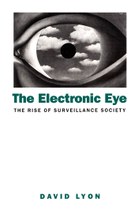 The Electronic Eye
The Rise of Surveillance Society
David Lyon
1994 Spring
The Electronic Eye
The Rise of Surveillance Society
David Lyon
1994 Spring
- Lyon looks into our mediated way of life, where every transaction and phone call, border crossing, vote, and application registers in some computer, to show how electronic surveillance influences social order in our day.
-
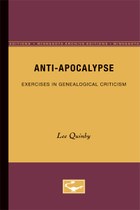 Anti-Apocalypse
Exercises in Genealogical Criticism
Rowena Lee Quinby
1994 Spring
Anti-Apocalypse
Exercises in Genealogical Criticism
Rowena Lee Quinby
1994 Spring
- Drawing on feminist and Foucauldian theory, Quinby offers a powerful critique of the millenarian rhetoric that pervades American culture. Tracing the deployment of power through systems of alliance, sexuality, and technology, the author promotes a variety of critical stances-genealogical feminism, an ethics of the flesh, and “pissed criticism”-as challenges to apocalyptic claims for absolute truth and universal morality.
-
 Formations of Ritual
Colonial and Anthropological Discourses on the Sinhala Yaktovil
David Scott
1994 Spring
Formations of Ritual
Colonial and Anthropological Discourses on the Sinhala Yaktovil
David Scott
1994 Spring
- Yaktovil is an elaborate healing ceremony employed by Sinhalas in Sri Lanka to dispel the effects of the eyesight of a pantheon of malevolent supernatural figures known as yakku. Scott’s investigation of yaktovil and yakku within the Sinhala cosmology is also an inquiry into the ways in which anthropology, by ignoring the discursive history of the rituals, religions, and relationships it seeks to describe, tends to reproduce ideological-often, specifically colonial-objects. “A challenging work that is on the one hand a fine descriptive ethnography of a Sri Lankan ritual and on the other hand an examination of the presuppositions that went into the construction of 'demonology' in Sri Lanka. It will, I am sure, provoke a vigorous debate on the nature of ethnographic writing.” --Gananath Obeyesekere, Princeton University
-
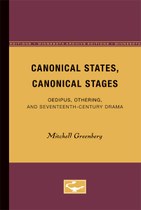 Canonical States, Canonical Stages
Oedipus, Othering, and Seventeenth-Century Drama
Mitchell Greenberg
1994 Spring
Canonical States, Canonical Stages
Oedipus, Othering, and Seventeenth-Century Drama
Mitchell Greenberg
1994 Spring
- "Greenberg offers a powerful interpretation of the classical stage in its relationship to the emergence of absolutism in Europe....The originality and strength of the book reside in its fascinating integration of texts dealing with political theory, psychoanalysis, history, and literature....This book is one of the most important contributions to date on the study of the European classical stage." --Marie-Hélène Huet, University of Virginia
-
 Passionate Fictions
Gender, Narrative, and Violence in Clarice Lispector
Marta Peixoto
1994 Spring
Passionate Fictions
Gender, Narrative, and Violence in Clarice Lispector
Marta Peixoto
1994 Spring
-
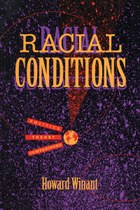 Racial Conditions
Politics, Theory, Comparisons
Howard Winant
1994 Spring
Racial Conditions
Politics, Theory, Comparisons
Howard Winant
1994 Spring
- More than a quarter-century after the passage of civil rights legislation in the United States and decades since the last European colonies attained their independence, race continues to play a central role in cultural, political, and economic life, both in the United States and around the globe. Howard Winant argues that race cannot be understood as a “social problem” or as a “survival” of earlier, more benighted ages. Indeed, from the rise of Europe to the present, race has been a social condition, a permanent though flexible feature of human society and identity. Among the topics discussed are the relationship between race and class, as well as the racial dimensions of gender, diaspora, colonialism, and fascism. Other key topics include the changing nature of racial identity in the post-civil rights era, the 1992 Los Angeles riot, and politics of race in Brazil.
-
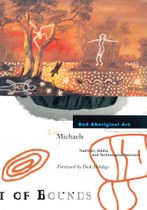 Bad Aboriginal Art
Tradition, Media, and Technological Horizons
Eric Michaels
1993 Fall
Bad Aboriginal Art
Tradition, Media, and Technological Horizons
Eric Michaels
1993 Fall
- This is the account of the author‘s period of residence and work with the Walpiri Aborigines of western Central Australia, where he studied the impact of television on these remote communities. Sharp, exact, and unrelentingly honest, this volume records with an extraordinary combination of distance and immersion the intervention of technology into a remote Aboriginal community and that community’s forays into broadcasting.
-
 Museum Culture
Histories, Discourses, Spectacles
Daniel J. Sherman and Irit Rogoff, Editors
1994 Spring
Museum Culture
Histories, Discourses, Spectacles
Daniel J. Sherman and Irit Rogoff, Editors
1994 Spring
- Written from a broad range of perspectives in history, art history and criticism, critical theory, and sociology, the essays in this volume go beyond previous institutional analyses to consider museums as the intricate amalgam of architecture, history, practices and strategies of display, pedagogical and other programs, functioning under the aegis of various governing ideologies. Contributors: Ariella Azoulay, Frederick N. Bohrer, Chantal Georgel, Walter Grasskamp, Boris Groys, Anne Higonnet, Detlef Hoffman, Seth Koven, Dominique Poulot, Irit Rogoff, Daniel J. Sherman, Brian Wallis, and Vera L. Zolberg.
-
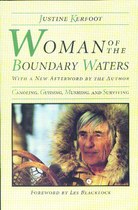 Woman of the Boundary Waters
Canoeing, Guiding, Mushing, and Surviving
Justine Kerfoot
1994 Spring
Woman of the Boundary Waters
Canoeing, Guiding, Mushing, and Surviving
Justine Kerfoot
1994 Spring
- The Boundary Waters region of Minnesota and Ontario is a vast wilderness of quiet beauty, visited and loved by many, but home to only a rugged few. Justine Kerfoot arrived there in 1928 and has lived there ever since. As she relates her lessons from the Canadian Indians across the lake-how to paddle a canoe, hunt moose, drive a dog team, and stay warm at minus 40 degrees-Kerfoot gives us a rich sense of the world of the Indians and fur trappers. Her lyrical descriptions of wildlife and seasonal environments express the deep reverence for nature that has become her way of life.
-
 Reading Proust
In Search of Wolf-Fish
Maria Paganini
1994 Spring
Reading Proust
In Search of Wolf-Fish
Maria Paganini
1994 Spring
- Reading Proust focuses on the specificity of Proustian writing, revealing the patterns of thought and play of words peculiar to Proust's language, and showing how these metamorphose throughout La Recherche du temps perdu. Her work offers a new model for reading fictional prose, one that replaces the critical "why?" with the more practical and productive "how?"
-
 Freshwater Marshes
Ecology and Wildlife Management
Milton W. Weller
1994 Spring
Freshwater Marshes
Ecology and Wildlife Management
Milton W. Weller
1994 Spring
- In this updated third edition, Weller describes the components of the freshwater marsh-its annual and seasonal dynamics as affected by rainfall cycles and the plant and animal population's response to such changes. Weller discusses how such wetland areas are managed for wildlife populations and diversity, and how such processes can be used in wetland conservation and restoration. He considers the impact society has on wetlands and offers conservation goals for freshwater wetland complexes. Weller broadens the third edition to include an analysis of how prairie wetlands compare in water dynamics with swamps, tidal marshes, and other wetlands. He also expands the discussion of wetland classification, evaluation, mitigation, and restoration, and introduces a new glossary of current wetland terminology.
-
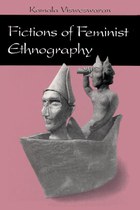 Fictions of Feminist Ethnography
Kamala Visweswaran
1994 Spring
Fictions of Feminist Ethnography
Kamala Visweswaran
1994 Spring
- Although feminist ethnography is an emerging genre, the question of what the term means remains open. Recent texts which fall under this rubric rely on unexamined notions of “sisterhood” and the recovery of “lost” voices. In these essays about her work with women in Southern India, Kamala Visweswaran addresses such troubled issues. Blurring distinctions between ethnographic and literary genres, these essays employ the narrative strategies of history, fiction, autobiography and biography, deconstruction, and post-colonial discourse to reveal the fictions of ethnography and the ethnography in fiction.
-
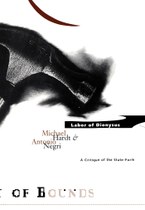 Labor of Dionysus
A Critique of the State-Form
Michael Hardt and Antonio Negri
1994 Spring
Labor of Dionysus
A Critique of the State-Form
Michael Hardt and Antonio Negri
1994 Spring
- “Labor is the living, form-giving fire,” Marx wrote. “It is the transitoriness of things, their temporality, as their transformation by living time.” How is it, then, that labor, with all its life-affirming potential, has become the means of capitalist discipline, exploitation, and domination in modern society? The authors expose and pursue this paradox through a systematic analysis of the role of labor in the processes of capitalist production and in the establishment of capitalist legal and social institutions. Critiquing liberal and socialist notions of labor and institutional reform from a radical democratic perspective, Hardt and Negri challenge the state-form itself.
-
 City and Spectacle in Medieval Europe
Barbara A. Hanawalt and Kathryn L. Reyerson, Editors
1994 Spring
City and Spectacle in Medieval Europe
Barbara A. Hanawalt and Kathryn L. Reyerson, Editors
1994 Spring
- Drawing examples from Spain, England, France, Italy, and the Netherlands, most of them in the fifteenth century, the contributors explore the uses of ceremony as statements of political power, as pleas for divine intercession, and as expressions of popular culture. Their essays show us spectacles meant to confirm events such as victories, the signing of a city charter, or the coronation of a king. In other circumstances, the spectacle acts as a battleground where a struggle for the control of the metaphors of power is played out between factions within cities or between cities and kings. Still other ceremonies called upon divine spiritual powers in the hope that their intervention might save the urban inhabitants. Contributors; Lorraine Attreed, Brigitte Bedos-Rezak, Elizabeth A. R. Brown, Lawrence McBride Bryant, Maureen Flynn, Barbara A. Hanawalt, Bram Kempers, Sheila Lindenbaum, Ben R. McRee, James Murray, David Nicholas, Gerard Nijsten, Nancy Freeman Regalado, Kathryn L. Reyerson, and Teofilo R. Ruiz.
-
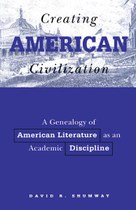 Creating American Civilization
A Genealogy of American Literature as an Academic Discipline
David R. Shumway
1994 Spring
Creating American Civilization
A Genealogy of American Literature as an Academic Discipline
David R. Shumway
1994 Spring
- “‘American literature’ seems by now so natural and inevitable an entity that we forget that it did not just grow organically out of American soil, much less spring full blown from the minds of a few geniuses. In this highly readable study, David Shumway recovers the forgotten social, historical, and institutional conditions that explain why the concepts both of ‘literature’ and of distinctive literary Americanness emerged together at a particular time and place and how their merger reshaped America's educational vision. Shumway has written a penetrating and provocative account of the making of American Civilization as an academic field.” --Gerald Graff, University of Chicago
-
 Urban Wildlife Habitats
A Landscape Perspective
Lowell W. Adams
1994 Spring
Urban Wildlife Habitats
A Landscape Perspective
Lowell W. Adams
1994 Spring
- In this first book-length study of the subject, Adams reviews the impact of urban and suburban growth on natural plant and animal communities and reveals how, with appropriate landscape planning and urban development, cities and towns can be made more accommodating for a wide diversity of species, including our own.
-
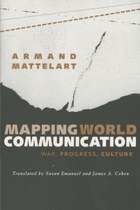 Mapping World Communication
War, Progress, Culture
Armand Mattelart
1994 Fall
Mapping World Communication
War, Progress, Culture
Armand Mattelart
1994 Fall
- A distinguished media theorist exposes the connection between militarism and the evolution of the media industry.
-
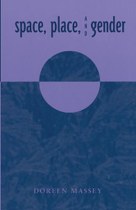 Space, Place, and Gender
Doreen Massey
1994 Fall
Space, Place, and Gender
Doreen Massey
1994 Fall
- A leading feminist geographer puts forth new ways of thinking about space and place.
-
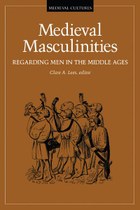 Medieval Masculinities
Regarding Men in the Middle Ages
Clare A. Lees, Editor
1994 Fall
Medieval Masculinities
Regarding Men in the Middle Ages
Clare A. Lees, Editor
1994 Fall
- This collection of essays examines the ideals and archetypes of men in Medieval times and how these concepts have affected the definition of masculinity and its place in history. Contributors: Christopher Baswell, Vern L. Bullough, Stanley Chojnacki, John Coakley, Thelma Fenster, Clare Kinney, Clare A. Lees, Jo Ann McNamara, Louise Mirrer, Harriet Spiegel, and Susan Mosher Stuard.
-
 Monitored Peril
Asian Americans and the Politics of TV Representation
Darrell Y. Hamamoto
1994 Fall
Monitored Peril
Asian Americans and the Politics of TV Representation
Darrell Y. Hamamoto
1994 Fall
- The first major study of Asian American representation on U.S. television.
-
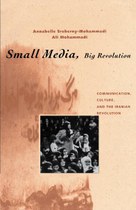 Small Media Big Revolution
Communication, Culture and the Iranian Revolution
Annabelle Sreberny-Mohammadi and Ali Mohammadi
1994 Fall
Small Media Big Revolution
Communication, Culture and the Iranian Revolution
Annabelle Sreberny-Mohammadi and Ali Mohammadi
1994 Fall
- Reveals how small media (leaflets and audio cassettes) played an important role in the revolution that deposed the Shah of Iran.
-
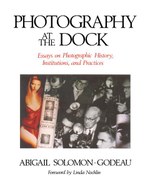 Photography at the Dock
Essays on Photographic History, Institutions, and Practices
Abigail
Solomon-Godeau
1994 Fall
Photography at the Dock
Essays on Photographic History, Institutions, and Practices
Abigail
Solomon-Godeau
1994 Fall
- Classic book integrating cultural criticism, feminism, art theory, and the history of photography now available in paperback.
-
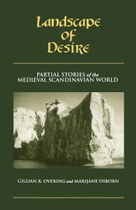 Landscape of Desire
Partial Stories of the Medieval Scandinavian World
Gillian R. Overing and Marijane Osborn
1994 Fall
Landscape of Desire
Partial Stories of the Medieval Scandinavian World
Gillian R. Overing and Marijane Osborn
1994 Fall
- The exhilarating journey of two female scholars is described in this book, which describes their travels as they follow Beowulf’s sea route and explore legendary sites from the Icelandic sagas.
-
 Unstable Frontiers
Technomedicine and the Cultural Politics of “Curing” AIDS
John Nguyet Erni
1994 Fall
Unstable Frontiers
Technomedicine and the Cultural Politics of “Curing” AIDS
John Nguyet Erni
1994 Fall
- John Erni gives a hopeful view of how we might challenge the way scientists, healers, and the mass media look at the task of treating AIDS.
-
 Critical Practices in Post-Franco Spain
Silvia L. Lopez, Jenaro Talens and Dario Villanueva, Editors
1994 Fall
Critical Practices in Post-Franco Spain
Silvia L. Lopez, Jenaro Talens and Dario Villanueva, Editors
1994 Fall
- Looks at critical theory and practices in Spain in the post-Franco period.
-
 The Names of History
On the Poetics of Knowledge
Jacques Ranciere
1994 Fall
The Names of History
On the Poetics of Knowledge
Jacques Ranciere
1994 Fall
- Reveals the significant impact of historiography on the human sciences during the twentieth century.
-
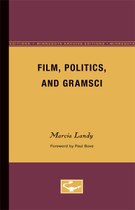 Film, Politics, and Gramsci
Marcia Landy
1994 Fall
Film, Politics, and Gramsci
Marcia Landy
1994 Fall
- Studies history as a form of folklore and reveals Gramsci's contributions to a rethinking of Marxism.
-
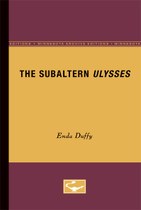 The Subaltern Ulysses
Enda Duffy
1994 Fall
The Subaltern Ulysses
Enda Duffy
1994 Fall
- Reveals that James Joyce's Ulysses can be seen as a guerrilla text written to resist colonialism.
-
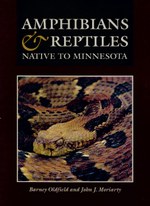 Amphibians and Reptiles Native to Minnesota
Barney Oldfield and John J. Moriarty
1994 Fall
Amphibians and Reptiles Native to Minnesota
Barney Oldfield and John J. Moriarty
1994 Fall
- The only guide to amphibians and reptiles of the Upper Midwest-includes maps and aids to identification for the amateur.
-
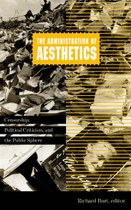 The Administration of Aesthetics
Censorship, Political Criticism, and the Public Sphere
Richard Burt, Editor
1994 Fall
The Administration of Aesthetics
Censorship, Political Criticism, and the Public Sphere
Richard Burt, Editor
1994 Fall
- Calls attention to the crucial difficulties inherent in censorship when it is used as a tool for cultural criticism.
-
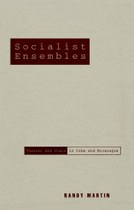 Socialist Ensembles
Theater and State in Cuba and Nicaragua
Randy Martin
1994 Fall
Socialist Ensembles
Theater and State in Cuba and Nicaragua
Randy Martin
1994 Fall
- Adds the new dimension of theater to discussions of the evolution of socialist states.
-
 Democracy
Anthony Arblaster
1994 Fall
Democracy
Anthony Arblaster
1994 Fall
- A revised and expanded edition of a favorite text for students embarking on the study of democracy, including the collapse of European communism.
-
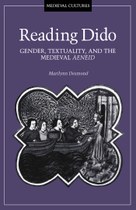 Reading Dido
Gender, Textuality, and the Medieval Aeneid
Marilynn Desmond
1994 Fall
Reading Dido
Gender, Textuality, and the Medieval Aeneid
Marilynn Desmond
1994 Fall
- Describes the variations in the figure of Dido as she emerges from ancient literary texts.
-
 Human Geography
Society, Space, and Social Science
Derek Gregory, Ron Martin and Graham Smith, Editors
1994 Fall
Human Geography
Society, Space, and Social Science
Derek Gregory, Ron Martin and Graham Smith, Editors
1994 Fall
- A broad examination of the relationship between human geography and the social sciences-suitable for college classrooms.
-
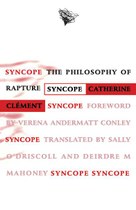 Syncope
The Philosophy of Rapture
Catherine Clement
1994 Fall
Syncope
The Philosophy of Rapture
Catherine Clement
1994 Fall
- Clément takes us whirling through the timelessness of syncope, the stop-time of music, literature, psychoanalysis, and philosophy. Examining moments of “syncopation” in the discourses of Plato, Descartes, Pascal, Hegel, and Kierkegaard, the author critiques a classical Western logocentric philosophy that always tries to master any fissure of uncertainty.
-
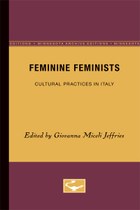 Feminine Feminists
Cultural Practices in Italy
Giovanna Miceli Jeffries, Editor
1994 Fall
Feminine Feminists
Cultural Practices in Italy
Giovanna Miceli Jeffries, Editor
1994 Fall
- Concludes that the terms "feminine" and "feminist" are not mutually exclusive in Italy.
-
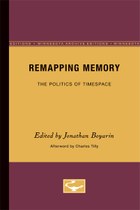 Remapping Memory
The Politics of TimeSpace
Jonathan Boyarin, Editor
1994 Fall
Remapping Memory
The Politics of TimeSpace
Jonathan Boyarin, Editor
1994 Fall
- Explores memory in the context of place and time.
-
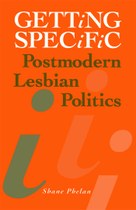 Getting Specific
Postmodern Lesbian Politics
Shane Phelan
1994 Fall
Getting Specific
Postmodern Lesbian Politics
Shane Phelan
1994 Fall
- The only book to debate lesbian political theory.
-
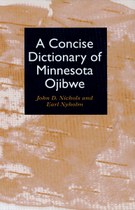 A Concise Dictionary of Minnesota Ojibwe
John D. Nichols and Earl Nyholm
1995 Spring
A Concise Dictionary of Minnesota Ojibwe
John D. Nichols and Earl Nyholm
1995 Spring
- This up-to-date resource for the linguistic and cultural heritage of the Anishinaabe contains ancient and modern words and meanings.
-
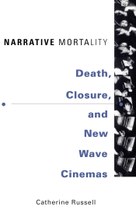 Narrative Mortality
Death, Closure, and New Wave Cinemas
Catherine Russell
1994 Fall
Narrative Mortality
Death, Closure, and New Wave Cinemas
Catherine Russell
1994 Fall
- Analyzes New Wave cinema from a postmodern perspective.